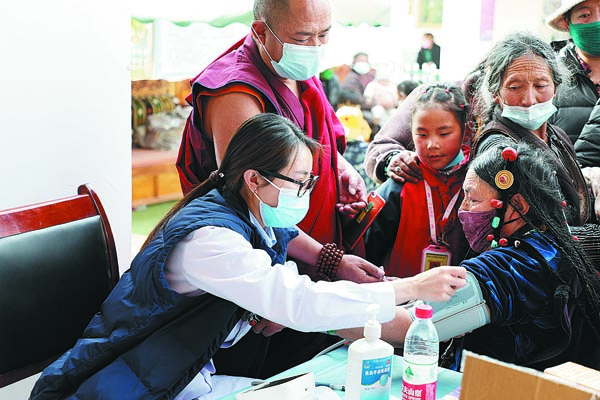

Moreover, she finds that local children often suffer from malnutrition, which is related to their dietary structure and local environment, especially the high altitude. That's quite different from her previous experience meeting many children worrying about obesity.
In Dalian, Zheng's job was centered around curing patients, but in Nagchu, she works as director of the pediatrics department of the hospital, and is more concerned about the development of the whole department, and what she can do to improve the health of local children.
"I try to impart some new treatment skills to local doctors. I will leave someday, but the advanced therapy knowledge can be left here to help them solve clinical problems and improve their ability to save patients who are in critical condition," says Zheng.
She contributed greatly to the establishment of a treatment center for critically ill children and newborns at the hospital, which is part of the National Health Commission's requirement to establish five types of first-aid centers in prefecture-level cities and counties.
In 2018, the commission issued a guideline requiring qualified medical institutions to establish centers for treating chest pain, stroke, trauma, critically ill pregnant women, children and newborns. As of July, there were more than 14,000 such centers all around the country, according to the commission.
Influenced by the environment, premature births are not rare in Nagchu, and newborns have a higher rate of disease related to a lack of oxygen. As a result, such a center, with specialized treatment, is necessary.